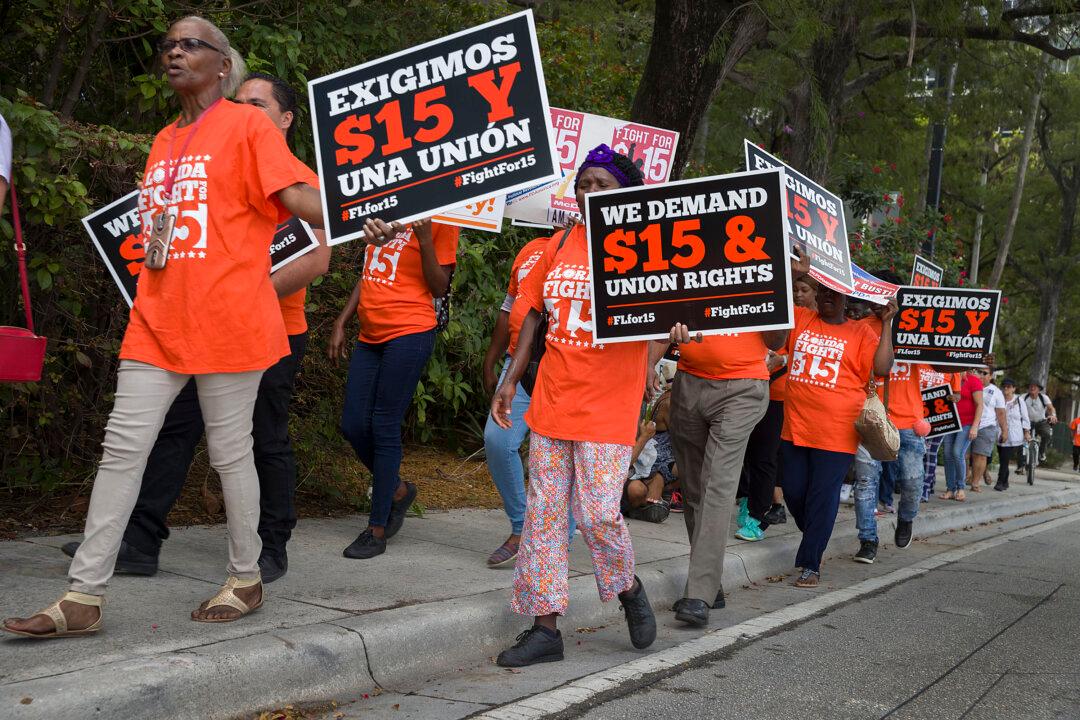Tom Baber, who operates an IHOP restaurant and a Money Mailer shop in Mercer County, New Jersey, has to deal with “very personally painful” consequences of state-imposed minimum wage increases every day.
“It’s very personally painful for me because I do not want one person to have to cut their hours or leave here, but there’s not a lot of choice for us,” Baber told reporters July 15 during an online news conference hosted by the Employment Policies Institute (EPI) think tank.





